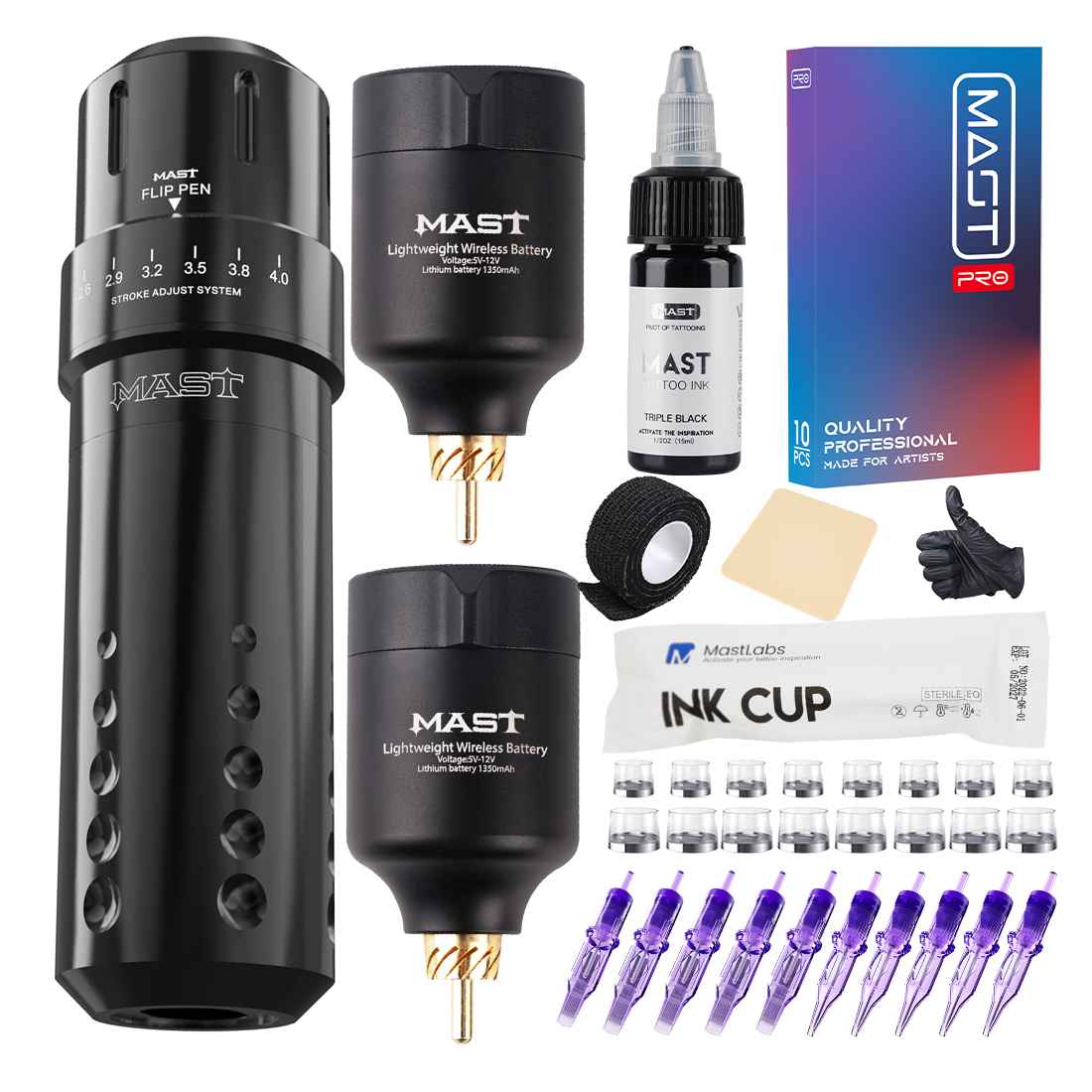In the realm of self-expression and personal identity, tattoos have become a powerful form of art and storytelling. But what about getting a tattoo at 16?
This intriguing age brings forth a unique set of considerations, both positive and negative, that deserve careful exploration.
In this comprehensive guide, we delve into the pros and cons of getting a tattoo at 16, shedding light on the opportunities and challenges that arise at this young age.
Understanding the pros of getting a tattoo at 16 encompasses the freedom to express individuality, commemorate personal milestones, and foster a sense of empowerment.
However, it is equally crucial to acknowledge the cons, such as age-related concerns and potential health and safety risks.
By engaging in this discussion, we emphasize the significance of contemplating tattoo decisions from an early age, ensuring informed choices and responsible decision-making.
Pros of getting a tattoo at 16
Getting a tattoo at 16 offers unique opportunities for self-expression and can hold emotional significance, allowing individuals to embrace their personal beliefs and commemorate important milestones in a visually impactful way.
1. Self-expression and individuality: Embracing personal beliefs and interests
Tattoos help for self expression and allows you explore your interests and individuality. Here are some ways it can help you do these;
- Visual storytelling
Tattoos serve as a canvas for expressing one’s passions, hobbies, or cultural heritage.
Whether it’s a symbol, quote, or artwork, it becomes a permanent reflection of one’s identity.
For instance, a16-year-old passionate about music may choose a tattoo of musical notes or an instrument to showcase their love for this art form.
- Empowerment through body art
Tattoos allow individuals to take ownership of their bodies and express their unique perspectives, fostering a sense of individuality and self-confidence.
Let’s take for example, a teenager who feels a deep connection to nature. He may opt for a tattoo of a majestic tree, symbolizing their love for the environment and their commitment to its protection.
2. Emotional significance and milestones: Commemorating life events
Tattoos can also be a way of commemorating life events, kind of like memorial stones, lols.
You can use it to track the following;
- Personal achievements
Tattoos can serve as reminders of personal accomplishments, such as overcoming challenges or achieving significant milestones, providing a tangible representation of growth and resilience.
Example: A 16-year-old who successfully completes a marathon might choose a tattoo of a runner crossing the finish line to commemorate their dedication and perseverance.
- Honoring loved ones
Tattoos can be meaningful tributes to family members, friends, or mentors, memorializing their impact on one’s life and keeping their memory alive.
Example: A teenager may opt for a tattoo of their late grandmother’s favorite flower as a touching tribute, symbolizing their everlasting bond and cherishing the memories they shared.
- Cultural heritage
Tattoos can be a way to celebrate and honor one’s cultural roots, preserving traditions and customs through symbolic imagery or patterns.
Example: A 16-year-old proud of their Native American heritage may choose a tattoo of a traditional tribal symbol, representing their connection to their ancestors and their cultural heritage.
Getting a tattoo at 16 offers a platform for artistic expression, allowing individuals to visually communicate their beliefs, aspirations, and life experiences.
It provides a means to embrace personal identity, celebrate milestones, and pay homage to what holds deep meaning in their lives.
Also Read: How old do I have to be to get a tattoo?
Cons of getting a tattoo at 16
While getting a tattoo at 16 may seem appealing, it’s important to consider the potential drawbacks.
From age-related considerations to health and safety risks, understanding these cons can help teenagers make informed decisions about permanent body art.
1. Age-related considerations: Maturity and future changes
Nothing is constant except, of course, change itself. And sometimes expectations don’t usually happen like we think they will. This can be challenging as regards getting a tattoo, seeing that tattoos are permanent.
Let’s see some of these cons;
- Limited life experience and perspective
At 16, individuals may not have fully developed their sense of identity, leading to potential regrets or mismatched tattoo choices in the future.
Example: A teenager who is passionate about a particular hobby or interest at 16 may outgrow it as they mature, making the tattoo less relevant or meaningful later in life.
- Evolving tastes and preferences
Personal preferences tend to change over time, and what may seem trendy or appealing at 16 might not resonate with one’s future self.
Example: A popular cartoon character or a trendy symbol that holds significance during adolescence may lose relevance or become outdated as the individual enters adulthood.
2. Health and safety risks: Immune system development and choosing reputable artists
Some of these dynamic factors can also be physical too. For example;
- Developing immune system
The immune system of a 16-year-old is still maturing, making them more susceptible to complications and infections during the tattooing process.
Example: Studies have shown that younger individuals may have a higher risk of experiencing adverse reactions such as infections, allergic reactions, or scarring due to their immune system’s immaturity.
- Limited knowledge and experience in selecting reputable artists
At 16, teenagers may have limited exposure to the tattoo industry, making it challenging to discern the skills and reputation of tattoo artists and the cleanliness of tattoo studios.
Example: Without sufficient knowledge and experience, teenagers may unknowingly choose inexperienced or unlicensed tattoo artists, increasing the risk of receiving subpar tattoos or being exposed to unhygienic practices.
By considering the age-related considerations and health and safety risks associated with getting a tattoo at 16, teenagers can make informed decisions about whether it’s the right time for permanent body art.
It’s essential to balance personal desires with long-term implications, ensuring that the chosen tattoo aligns with future aspirations and maintaining a focus on health and safety throughout the process.
Also Read: Can you be 14 to get a tattoo?
Parental involvement and consent
Parental involvement and consent play a crucial role in the decision-making process when it comes to getting a tattoo at 16.
As teenagers navigate the desire for self-expression, parents have an opportunity to provide guidance and support.
By fostering open communication and embracing shared choices, both parents and teens can navigate the complexities of tattoo decisions together.
Role of parents in decision-making
Parents serve as trusted advisors and mentors for their teenage children, especially when it comes to permanent body modifications like tattoos.
They bring wisdom, life experience, and a long-term perspective to the decision-making process.
It is important for parents to actively engage in conversations with their teens, understanding their motivations, concerns, and desires regarding getting a tattoo at 16.
Benefits of open communication and shared choices
Here are some benefits of open communication with one’s parents or guardian regarding getting a tattoo;
- Building trust
Open communication establishes a foundation of trust between parents and teens.
When parents genuinely listen to their children’s perspectives and concerns, it fosters a sense of respect and strengthens the parent-child relationship.
Example: By engaging in an open conversation, parents may discover that their teenager wants a tattoo to commemorate a meaningful event or symbolize personal growth, leading to a deeper understanding of their child’s aspirations.
- Making informed decisions
When parents actively participate in the decision-making process, they can help their teenagers consider all aspects, including the potential long-term implications of getting a tattoo at a young age.
This collaborative approach enables informed decision-making based on shared values, responsible considerations, and realistic expectations.
Example: Parents can research reputable tattoo artists together with their teens, discussing safety measures, hygiene practices, and reviewing portfolios.
This joint exploration ensures a more informed choice and reduces potential risks.
- Emotional support
Tattoo decisions can be emotionally charged for teenagers. Parental involvement provides a support system during the decision-making process and beyond, offering guidance, reassurance, and a sense of security.
Example: Parents can share stories of their own experiences or those of friends who have gotten tattoos, providing insights into the potential joys and challenges associated with body art.
This support helps teenagers feel understood and encourages them to approach the decision with greater confidence.
By embracing their role as advisors and engaging in open communication, parents can guide their teenagers in making thoughtful choices regarding getting a tattoo at 16.
This collaborative approach fosters trust, informed decision-making, and a stronger parent-child bond as both parties navigate the intricacies of self-expression and personal growth.
Also Read: Is it okay to have a tattoo at 16?
Legal considerations: Age restrictions and consequences
Navigating the legal landscape is essential when contemplating getting a tattoo at 16.
Age restrictions vary across jurisdictions, and understanding the potential consequences ensures you make informed decisions regarding tattooing.
Let’s delve deeper into this intriguing aspect of tattoo legality.
1. Age Restrictions
Different countries and regions have varying laws concerning the minimum age for getting a tattoo.
for example, in the United States, the legal age ranges from 18 to 21, depending on the state.
Some areas permit tattooing at a younger age with parental consent or accompaniment.
Researching and understanding the specific regulations in your area is crucial to avoid legal complications.
2. Consequences of Underage Tattooing
Violating age restrictions can lead to serious repercussions. Tattoo artists who knowingly ink underage individuals may face legal penalties, including fines or suspension of their licenses.
For underage recipients, the consequences can extend beyond legal repercussions.
Improperly done tattoos could result in health complications or unwanted side effects, impacting both physical and emotional well-being.
3. Legal Implications
It’s essential to consider the long-term legal implications of getting a tattoo at 16.
For instance, certain professions or career paths may have specific regulations or cultural norms regarding visible tattoos.
Some employers may require tattoos to be covered, limiting job opportunities in certain industries.
Understanding these potential limitations can help you make choices aligned with your future aspirations.
4. Parental Consent
In jurisdictions where parental consent is required, involving your parents in the decision-making process is crucial.
Discussing the implications of getting a tattoo at 16 allows for open communication and ensures everyone is on the same page.
Parents can provide guidance, share their concerns, and help you make an informed decision that considers both your desires and their insights.
5. Seeking Professional Advice
If you’re uncertain about the legal aspects or have questions regarding age restrictions, consulting a reputable tattoo artist or seeking legal counsel can provide clarity.
They can offer guidance based on their experience and knowledge of local regulations, helping you make well-informed decisions while considering your safety and compliance with the law.
By exploring the legal considerations surrounding age restrictions for tattooing, you can approach the decision-making process with confidence and awareness.
Remember, being aware of the rules and potential consequences ensures you embark on your tattoo journey responsibly, protecting both your legal standing and overall well-being.
Also Read: Is 17 a good age to get a tattoo?
Alternatives to permanent tattoos at 16
If you’re considering alternatives to permanent tattoos at the age of 16, due to age restrictions or other restrictions on getting a permanent tattoo, here are exciting avenues for self-expression that allow for exploration without the lifelong commitment.
Temporary options such as henna designs and non-permanent tattoos offer unique artistic experiences, while other creative outlets provide a diverse range of self-expression methods.
1. Temporary options: Henna designs and non-permanent tattoos
Temporary tattoos, like enchanting henna designs, provide a captivating way to experiment with body art.
Henna, a natural dye derived from the henna plant, creates intricate patterns on the skin, allowing you to showcase your creativity and embrace cultural traditions.
These temporary designs fade over time, making them an excellent choice for trying out various styles or designs before committing to a permanent tattoo.
Non-permanent tattoos offer another avenue for exploration. These innovative temporary tattoos mimic the appearance of real tattoos but can be easily removed or washed off.
They come in various designs and styles, providing an opportunity to experiment with different looks without the long-term commitment.
2. Exploring diverse self-expression methods
Beyond temporary tattoos, numerous other forms of self-expression await your discovery.
Let your imagination soar as you explore diverse options such as body painting, which allows for expressive artwork on a temporary canvas.
Face and body painting can be an exciting way to experiment with colors, symbols, and designs, offering a vibrant and interactive form of self-expression.
Another avenue to explore is wearable art. Embrace your artistic side by customizing your clothing or accessories with fabric paints, patches, or embroidery.
This personalized touch adds a unique flair to your style and allows you to showcase your individuality in a temporary yet visually captivating manner.
For those with a passion for visual arts, try your hand at creating temporary body art using washable markers or body-safe paints.
Let your body be the canvas for your imaginative creations, and express your personality through intricate and temporary masterpieces.
By exploring these alternatives to permanent tattoos, you can engage in creative self-expression while enjoying the freedom to change and evolve your style as you grow.
Embrace the temporary nature of these options and unleash your artistic spirit, creating captivating and ever-changing forms of self-expression.
Remember, self-expression is a journey, and exploring various alternatives before committing to a permanent tattoo at 16 allows you to discover your unique artistic preferences and make choices that truly resonate with your evolving identity.
Also Read: Will my tattoo stretch if I get it at 18?
FAQs on getting a tattoo at 16
Can a 16-year-old get a tattoo without parental consent?
No, in most jurisdictions, a 16-year-old cannot get a tattoo without parental consent.
Age restrictions vary by location, but parental consent is typically required for minors.
What health risks are associated with getting a tattoo at 16?
Health risks associated with getting a tattoo at 16 include potential infections, allergic reactions, scarring, and improper healing.
Younger individuals may have developing immune systems and may be more susceptible to complications.
How can parents support their child’s decision?
Parents can support their child’s decision by engaging in open and honest communication.
They can discuss the reasons behind the desire for a tattoo, educate themselves and their child about the risks and responsibilities, and accompany their child to reputable tattoo studios to ensure safety and professionalism.
Are there career implications for young tattoo recipients?
Yes, there can be career implications for young tattoo recipients. Some professions have strict dress code policies that prohibit visible tattoos.
It’s important to consider potential future career paths and the industry’s acceptance of visible tattoos before making a decision.
What are alternative self-expression options for teenagers?
Alternative self-expression options for teenagers include temporary tattoos, henna designs, body painting, wearable art customization, and exploring other creative outlets such as music, writing, painting, photography, or performing arts.
These allow for self-expression without the long-term commitment of permanent tattoos.
Also Read: Pros and cons of getting a tattoo at 16
Conclusion
In weighing the pros and cons of getting a tattoo at 16, it is evident that this decision holds both excitement and responsibility.
The pros, such as self-expression, individuality, and emotional significance, showcase the potential for personal growth and empowerment.
However, the cons, including age-related considerations and health risks, underscore the importance of careful consideration and informed decision-making.
It is crucial for teenagers and their parents to engage in open and honest discussions, considering the long-term implications and career prospects.
While the allure of body art is undeniable, it is essential to remember that choices made at a young age can have lasting effects.
Parental involvement is vital, providing guidance, support, and ensuring responsible choices are made.
Therefore, as young individuals explore their desire for tattoos, let’s encourage thoughtful decision-making.
Consider temporary options, alternative forms of self-expression, and embrace the exciting journey of discovering personal style and identity.
By approaching this decision with mindfulness and parental support, teenagers can make informed choices that align with their values and aspirations.
Ultimately, the pros and cons of getting a tattoo at 16 present an opportunity for growth, self-discovery, and the development of responsible decision-making skills.






